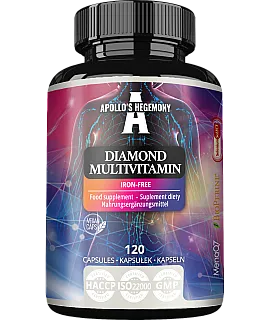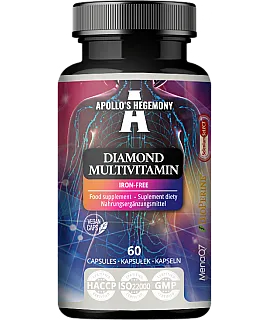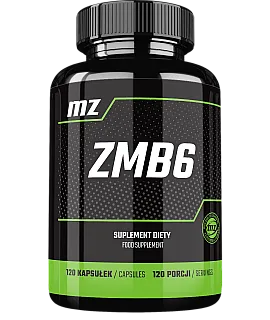Supplements for autumn - a set of essential supplements

The arrival of autumn is not only the beautiful colors of the leaves on the trees and the falling leaves, chestnuts and acorns from the trees, but also a time of frequent colds and flu-like infections in people. Many people then reach for a variety of dietary supplements to strengthen the body's immunity, improve mood and mental and physical performance. This is expected to translate into a reduction in infections, doctor's visits and medication consumption, and absenteeism from work.
Supplements for autumn - cold and flu season
A cold is a set of upper respiratory tract symptoms involving inflammation of the mucous membranes of the nose, throat and paranasal sinuses, which are caused by a viral infection. It is believed that the common cold is the most common human disease, affecting the majority of the population across the globe several times a year. In European countries, adults typically have 2 to 5 infections per year, while children have 6 to 12 colds per year, and the percentage of symptomatic infections increases in the elderly. Autumn and winter are a period of higher incidence of upper respiratory tract infections, with cold episodes lasting about 10 days on average. Keeping the immune system in good shape reduces the incidence of infections, the severity of symptoms and shortens the overall duration of a cold. Indeed, as it turns out, in addition to a well-composed and varied diet, there are several dietary supplements that can boost immunity during the fall season.
Vitamin D
The list of useful supplements for autumn opens with vitamin D, the most commonly recommended by doctors and other health professionals these days. Vitamin D deficiency is a common phenomenon, and even more so in the fall and winter, when we spend most of the day indoors and exposure to sunlight is marginal. Epidemiological studies have shown that people with high blood levels of vitamin D have a lower risk of upper respiratory tract infections such as the common cold and flu. Daily vitamin D supplementation of 4,000 IU per day was found to significantly reduce the risk of upper respiratory tract infections. Regular vitamin D supplementation can protect against the common cold, with the greatest health benefits for patients with vitamin D deficiency and those who start taking it in early autumn to ensure adequate blood levels of vitamin D in winter. Undoubtedly, the status of the body's vitamin D supply should be monitored regularly in adult patients with frequent upper respiratory tract infections, and if a deficiency is found, vitamin D treatment should be started immediately.
Vitamin C
Another dietary supplement that can come in handy during the fall season is vitamin C, which is well known to all. For as it turns out, vitamin C can shorten the duration of upper respiratory tract infections, especially the common cold. Taking vitamin C at a dose of 1 to 4 grams per day can alleviate cold symptoms such as fever, chills and chest pains. Studies conducted to date have shown that vitamin C shortened the total duration of a cold by an average of 8% in adults and 14% in children. In addition, it has been suggested that the use of vitamin C in children in a daily dose of 1 to 2 grams can reduce the duration of a cold by up to 18%. Admittedly, this is a modest effect on the course of a cold, but consistent in terms of reducing the duration and severity of cold symptoms. As the famous Polish saying goes, "better a fish than nothing," all the more so given the low cost and high safety profile of vitamin C. It is also worth mentioning that a special category of people who may need vitamin C supplementation are professional and amateur athletes who regularly engage in high-intensity exercise. In a study involving systematically trained marathon runners and skiers, it was shown that vitamin C supplementation of 0.6 to 1.0 grams per day halved the risk of developing a cold.
Zinc
The next dietary supplement to consider during the fall season is zinc. Current research shows that dietary supplementation with zinc can reduce the duration of a cold by about 33%. Patients with a cold should start taking zinc within 24 hours of the first symptoms. Dietary zinc supplementation may reduce the risk of developing acute viral respiratory infections in the adult population, which is unlikely to be zinc deficient. Zinc used to treat viral respiratory tract infections has also been found to shorten the duration of symptoms and reduce their severity by day three. To top it off, the results of a recent meta-analysis involving 5 studies with a total of 1,398 participants showed that dietary zinc supplementation is associated with a 43% lower mortality rate in patients with COVID-19, although not all studies support a beneficial effect of zinc on the course of COVID-19 disease.
Echinacea purpurea (L.) Moench
The last product that simultaneously closes the short list of supplements for autumn is Echinacea purpurea. The use of preparations containing Echinacea purpurea (L.), can be a complementary treatment for upper respiratory tract infections. The results of a meta-analysis of 6 randomized clinical trials with a total of 2458 participants showed that Echinacea purpurea extract reduces the risk of recurrence and development of complications of upper respiratory tract infections through its antiviral, anti-inflammatory and immunomodulatory effects. The current study suggests that supplementation with Echinacea purpurea extract at a dose of 2,400 mg per day for prevention and 4,000 mg per day for severe colds over a period of four months may prove beneficial in preventing and/or treating upper respiratory tract infections.
Sources:
- Bucher A, White N.: Vitamin C in the Prevention and Treatment of the
Common Cold. Am J Lifestyle Med. 2016 Feb 9;10(3):181-183. - Rondanelli M, Miccono A, Lamburghini S, et al.: Self-Care for Common
Colds: The Pivotal Role of Vitamin D, Vitamin C, Zinc, and Echinacea.
in Three Main Immune Interactive Clusters (Physical Barriers, Innate
and Adaptive Immunity) Involved during an Episode of Common
Colds-Practical Advice on Dosages and on the Time to Take These
Nutrients/Botanicals in order to Prevent or Treat Common Colds. Evid
Based Complement Alternat Med. 2018 Apr 29;2018:5813095. - Wang MX, Win SS, Pang J., et al: Zinc Supplementation Reduces Common
Cold Duration among Healthy Adults: A Systematic Review of Randomized
Controlled Trials with Micronutrients Supplementation. Am J Trop Med
Hyg. 2020 Jul;103(1):86-99. - Lenhart JG, Vu PT, Quackenbush K, et al: The efficacy of a
compounded micronutrient supplement on the incidence, duration, and
severity of the common cold: A pilot randomized, double-blinded,
placebo-controlled trial. PLoS One. 2020 Aug 25;15(8):e0237491. - Wang MX, Gwee SXW, Pang J.: Micronutrients Deficiency,
Supplementation and Novel Coronavirus Infections-A Systematic Review
and Meta-Analysis. Nutrients. 2021 May 10;13(5):1589. - Singh B, Eshaghian E, Chuang J, et al: Do Diet and Dietary
Supplements Mitigate Clinical Outcomes in COVID-19? Nutrients. 2022
May 2;14(9):1909.
 ⮜ Previous article
⮜ Previous article
What action does ginkgo biloba have? Find out what it can do for your brain and heart
 Next article ⮞
Next article ⮞


